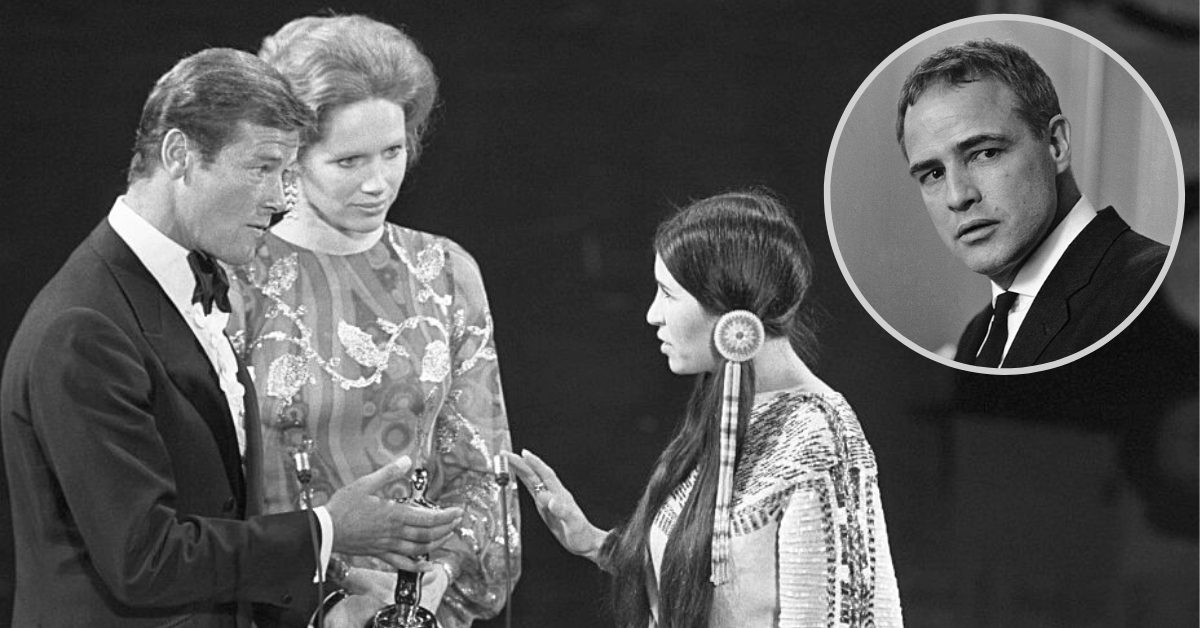To this day, Marlon Brando remains one of the most interesting characters in movie history. His tumultuous personality has turned into a “Brando-archetype”. He was one of the most difficult people to work with for everyone else in the movie industry, and the most desired and admired among the audience.
After his portrayal of Stanley Kowalski in A Streetcar Named Desire, Emiliano Zapata in Viva Zapata!, and Mark Antony in Julius Caesar during the 1950s, the career of Marlon Brando slid into decline during the 1960s – with One-Eyed Jacks and Mutiny on the Bounty, the latter of which is considered as the end of Hollywood’s golden age.
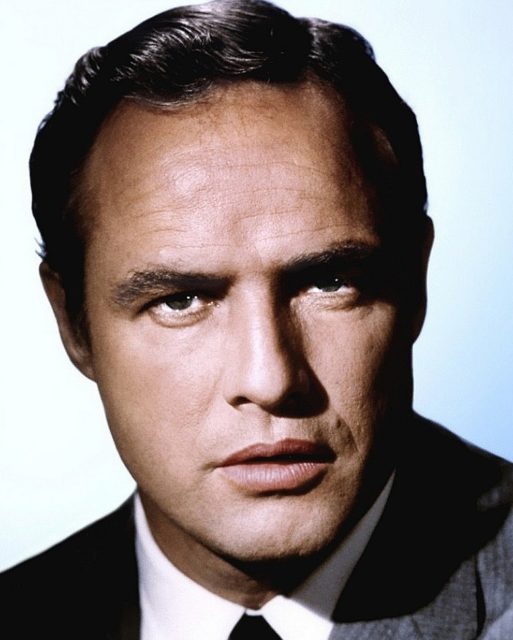
Then, in 1972, The Godfather, one of the 15 highest grossing movies of all time, was released, and Brando got nominated for Best Actor at the Academy Awards in 1973.
At the 45th Academy Awards ceremony, the presenters — Liv Ullman and Roger Moore — announced Brando as the winner and the audience applauded with joy. Nobody could argue that his epic portrayal of Vito Corleone, the Don of an Italian Mafia family in New York, deserved the Oscar.
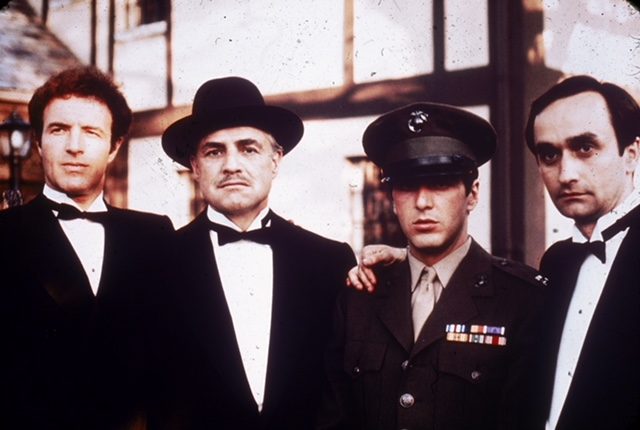
However, he declined the award, becoming one of three people who has ever refused an Oscar. He didn’t even bother showing up at the ceremony. Instead, he sent the young actress Sacheen Littlefeather to explain his unexpected reasons for the decline. She showed up on stage in Apache dress, with her long, dark hair bobbed against her shoulders.
Littlefeather was a little-known actress at the time and the president of the National Native American Affirmative Image Committee. Her ancestors were White Mountain Apache, and she was an Indian rights activist.
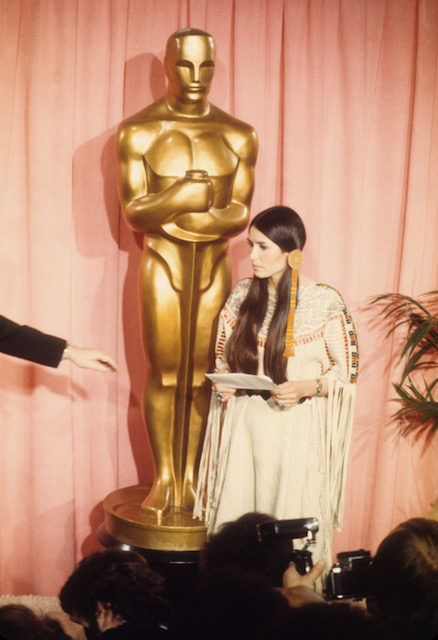
Brando himself was an activist throughout his life. “He modeled a kind of social activism – the idea that actors were obliged in some sense to use their fame to help others” – writes the actor’s biographer, Susan Mizruchi in Brando’s Smile: His Life, Thought, and Work.
Littlefeather brought a 15-page script, all Brando’s speech, but before the start of the ceremony, the producers warned her that if she stayed on stage for more than 60 seconds she would be forcefully removed by security officers. The speech itself was typed up by Brando and finished just 30 minutes before Littlefeather took the stage.
She said: “I’m representing Marlon Brando this evening and he has asked me to tell you … that he very regretfully cannot accept this very generous award. And the reasons for this being are the treatment of American Indians today by the film industry …” after which some in the audience booed while most of them applauded.
Littlefeather agreed to step on stage on Brando’s behalf because she, just like him, believed in the impact of the act. He had always upheld that Native Americans were unfairly portrayed, mostly as alcoholics, unintelligent foes, and slackers.
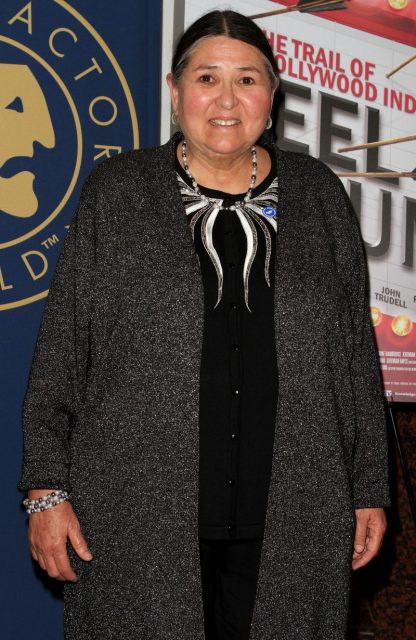
What prompted Brando to decline such a prestigious award was an incident during which the U.S. law enforcement got involved in quashing a protest at Wounded Knee, in February 1973. The protesters were Oglala Indians, along with members of the American Indian Movement who objected to the U.S. government’s failure to fulfill its treaties with Native Americans.
“The actor’s deeply rooted commitment to the civil rights movement…He really believed in a kind of ideal of independent thinking, which he got from Hannah Arendt, who was his favorite philosopher” – writes Mizruchi.
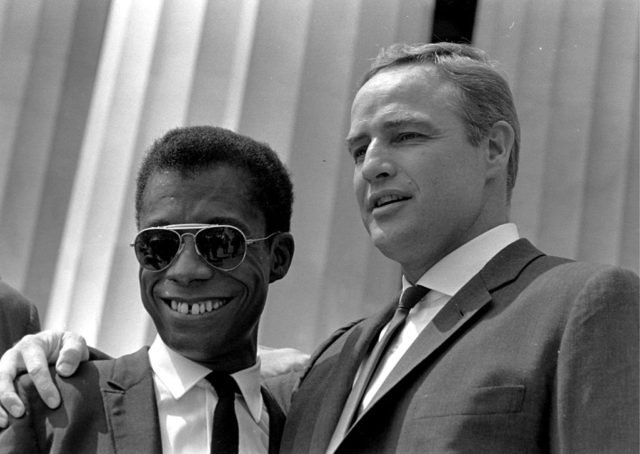
Later, the L.A. Times reported that in Brando’s letter for the Academy Awards, among other things, he had written: “It’s hard enough for children to grow up in this world. When Indian children watch television, and they watch films, and when they see their race depicted as they are in films, their minds become injured in ways we can never know.”
Sadly, while Brando starred in many movies, including Last Tango in Paris and Apocalypse Now, Littlefeather’s career ended after the incident. However, she became a role model for many activists for Native American rights and a prominent lecturer on the subject. Brando remained an outspoken advocate of Native American rights for the rest of his life.
More from us: The Unfinished Brando-Depp Movie that Turned a Sleepy Irish Village Upside Down
Fifty years later, the Academy issued Sacheen Littlefeather a formal apology for her experience that day.
